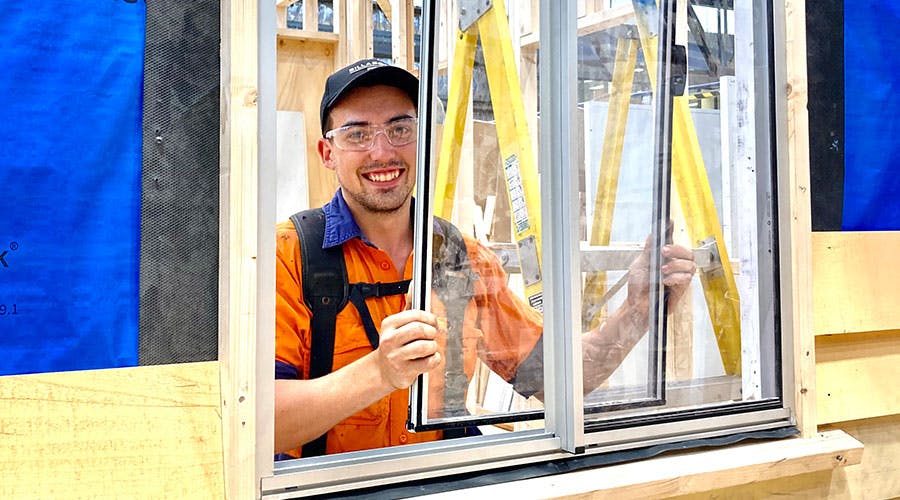Carpentry Apprenticeship
A Carpentry Apprenticeship will prepare you for a job where you will cut, shape and install building materials in the construction of residential, commercial and industrial building and infrastructure.
As a carpentry apprentice you are joining the growing building trade offering opportunities to work outdoors and with further qualifications and experience work towards becoming your own boss.
There are three main specialisation areas within carpentry and depending on who your host employer is, your on-the-job training with see you qualified in one of these areas. These are:
- Domestic Carpentry
In domestic carpentry the primary focus is on the construction of individual private residences and could include house extensions and renovations as well as standard building maintenance.
- Commercial Carpentry
Commercial carpentry is concerned with the building and construction of shops, offices and other commercial spaces, and might include carrying out formwork and shop-fitting.
- Industrial Carpentry
Industrial Carpentry could see you working for a building company alongside multiple contractors on major construction projects, such as apartments and towers.
How Long is a Carpentry Apprenticeship
As a carpenter apprentice your on-the-job training will take 3-4 years.
During this time you will complete a nationally accredited qualification, such as:
- CPC30220 Certificate III in Carpentry
- CPC31920 Certificate III in Joinery
- CPC30120 Certificate III in Shopfitting

MIGAS Carpentry Apprentice Harry won a gold medal at the 2022 Regional WorldSkills Competition in Queensland.
What is a Carpenter
One of the world's oldest trades, a carpenter is a skilled worker who crafts wood and other materials to construct, install, and repair various structures, fixtures, and furniture.
Carpenters typically work in the construction industry, but they can also be employed by manufacturers or work as independent contractors.
Day to day tasks for a Carpentry Apprentice can include:
- Setting out an outline of the building on the ground of the site, using string and pegs to allow for excavations
- Cutting materials with hand and power tools, and assembling, nailing, cutting or shaping parts
- Reading and interpreting plans and specifications to determine the dimensions, materials required and installation processes
- Constructing formwork into which concrete is poured to form the slab or base of a building
- Building floors, wall frameworks (timber or metal) and roofs, and laying timber floors
- Installing door handles, locks, hardware, flooring underlay, insulating material and other fixtures
Carpenter Salary
A qualified carpenter in Australia typically earns $80,000 to $95,000, however salaries can be higher in certain industries such as mining, resources and energy. (Seek)
Wages for a carpentry apprentice are under the Building Award, and are determined by factors such as your age at commencement, Modern Award inclusions and other benefits.
Indicative Award wages for a carpentry apprentice as at 1 July 2025:
-
Aged under 17 years: $638.02 to $1,065.44 per week
-
Aged 17 to 20 years: $691.45 to $1,065.44 per week
-
Aged over 21 years: $1,071.22 per week (pay rate remains the same for all year levels as an adult)
Carpenter Apprentices are part of the Government's Australian Apprenticeships Priority List, and additional financial support payments for eligible apprentices are currently available.
Carpentry Apprentice Skill Requirements
The sorts of skills and aptitude required of carpentry apprentices include:
- Enjoyment of practical and manual work
- Problem-solving skills
- Spatial awareness
- Working from drawings
- Safety awareness
Find a Carpentry Apprenticeship
To get started in a carpentry apprenticeship, visit the MIGAS Jobs Board for current opportunities.